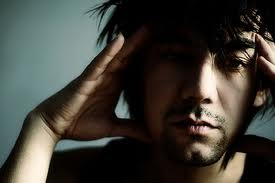It is apparent we spend a good deal of time worrying if we are making the right or wrong decisions in life. We also spend a lot of time regretting some decisions we have made along the way. Lastly, we spend a lot of time and effort focused on learning the right way to do something, and then beating ourselves up when we apparently have done it wrong.
How can you actually make a right decision or choice anyway? Were you born with a personal owner’s manual? If so, it would tell you all the right moves to make, in all the right order and thus you would know what was expected of you, and you could comply if you chose to do so. Then it would be easy to know if you were “making the right choice”.
Are there even right or wrong decisions and choices to be made, or are they just different catalysts that put into effect different potential outcomes of consequence? Do we have any way to really know what those consequences will be? Yes, we might know that the “right” thing to do is to put on a seatbelt when we are in a car, as we have been taught it will increase your chances of staying safe in the event of an automobile accident, but in reality it does not actually guarantee that outcome.
We also focus on how great it would be if we had 20/20 hind sight. Hind sight is 20/20 because we can see the chain of events clearly that were the consequence of a decision we made. If we had the foresight to see the outcome, decisions would be much easier to make, but would life be interesting at that point? If we automatically knew every right choice and did everything perfectly, there would be no challenge in life, nothing to strive for, nothing to be gained; it would be a very boring and predictable life.
The truth is we make choices and decisions from the best information we have at any given moment; and in relationship to who we are at that given moment. In this moment we are not who we were in the last moment, nor are we who we will be in the next moment. New information from experience comes to us each moment; thus, we would not necessarily make the same decision now as we did then, nor will we in the future.
What about the part where we beat ourselves up if we don’t do it right? If you saw a small child learning to walk, would you criticize them every time they attempted and failed? Doubtfully so, and if you did, the child would never gain the confidence in themselves and their experience to walk. Likewise, if you had a friend who spoke to you the way you allow your critical self sometimes to speak to you, how long would you keep that person as a friend?
If we learn from our mistakes, why do we regret so much making those mistakes?
We don’t typically go around mucking things up for the heck of it. Sometimes our thinking is skewed by our perceptions of things. We can’t really help that. Every experience in life builds its own perception of events which builds on and verifies what we already think we know. We cannot see things differently than we do even if we try, without someone or something outside ourselves influencing a change of perspective. That is called experience. When we have the experience that allows us to learn and grow we then automatically assume we should have done it differently. We regret our suffering and the suffering of others. Instead we should be embracing the fact that we mutually have successfully accomplished another learning experience together.
So often we are conditioned in fear, and that is why we worry about the mistakes. Where do we become so conditioned to worry about failure? If we make a mistake we might get punished. If we make a mistake we might not be liked. If we make a mistake we might not be respected. If we make a mistake we might die.
Instead of embracing our mistake and learning and growing from it, we instead look to accuse and blame things outside of ourselves for our failure. When we don’t take responsibility for our “mistake” we cannot gain the insight of that error.
Isn’t it more logical that if we make a mistake and learn from it we should be rewarded? If we own our errors and not blame others we would be well liked and admired? Isn’t it more likely that if we take responsibility of our ways and correct our course when we see it go awry we would be more respected? Isn’t it more likely that with experience we are more knowledgeable and cleaver and thus likely to be successful in adaptation to future events?
The bottom line to all of this is to be confident that you will find opportunity to make choices and decisions in life. If some of those choices and decisions bring about a painful or uncomfortable consequence, analyze what you have learned from that experience and work toward a solution of doing it different next time. Embrace your choice as the best one you could make for the moment of circumstances of who you were in that moment and what you knew in that moment, learn from the experience, and move on.
What are your thoughts?

 RSS Feed
RSS Feed